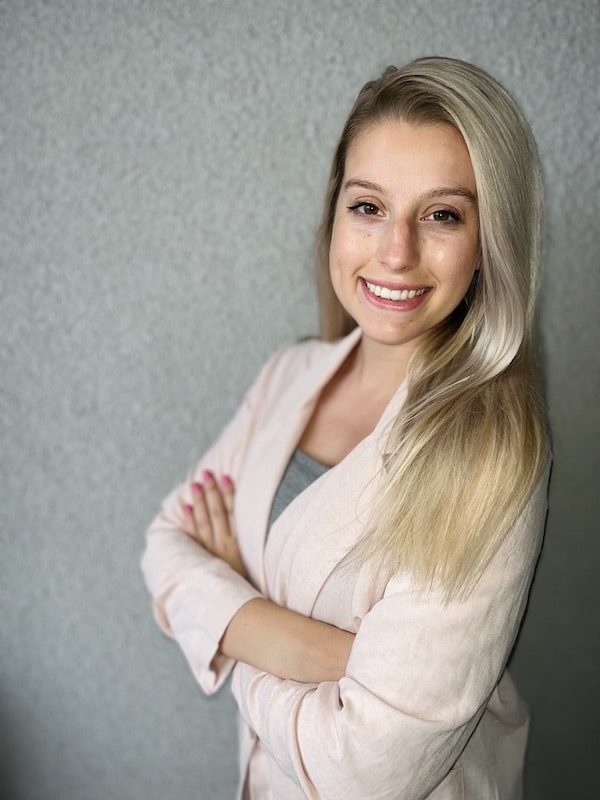At Moriah, Family Matters
At Moriah Behavioral Health, family matters.
In fact, our residential mood and anxiety program focuses as much on the home environment, family dynamics, and what happens after treatment as we do on the adolescent’s residential stay.
The alumni program at Moriah begins even before admission, when alumni program supervisor Hannah Rawson MSW-I CADC-I, connects incoming families with alumni families.
“What better way to feel connected to a community than meeting with families who have been through it,” Hannah said. “We onboard the families with a wealth of resources and psychoeducation, introduce them to the alumni group, and answer any questions they have about the treatment experience,” she said.
Hannah says the alumni community helps fill the gap that parents feel when their child enters treatment and also helps them feel close to the child’s growth and healing process. The weekly “parent cafe” support groups are available to families throughout treatment, as well as long after treatment is complete. Families can also attend our biweekly Parent Psycho-Education group and monthly Academic Support group. Hannah says Moriah’s tagline “With you for life” is really a tribute to the lasting impact and lifelong availability of the alumni program.

After admission, the real progress starts when families begin to engage with Moriah’s online parent portal and attend the weekly family therapy sessions, which is uniquely offered at all levels of care within Moriah’s services.
“The adolescents are learning new skills, like how to express themselves effectively and how to set appropriate boundaries, coping skills, and new ways of thinking about themselves and others,” Hannah said. “But we can’t send them back to a home environment that is completely unchanged or the growth will start to fade. Families have to learn to set new expectations and new ways of communicating, and they need to develop a comprehensive understanding of what their child has learned in treatment and how to support it,” she said.
Active participation and accountability are important factors in Moriah’s residential program, and that includes tracking progress and outcomes every step of the way. Moriah’s clinical staff utilizes feedback from clients and their families to continually improve the experience and outcomes of the program, as well as to ensure the interventions are making a difference. The outcome measures are a useful tool to share with both the families and the client, to provide a level of accountability for them as well as show their progress and growth.
“We have markers for post-discharge follow-up for our clients, so we can see how their anxiety and depression is scoring 30 days, 60 days and six months after they complete treatment,” Hannah said. “The work that I do with alumni is focused on both mental health measures and satisfaction surveys, and that data is used to constantly enhance our programming and client experience,” she said.
Hannah says the parents rely on the experiences of other parents when selecting a treatment program for their child, and often look for Google reviews before making that first call. Satisfaction with the program and lasting outcomes is the heart of our alumni program, and Hannah and the Moriah team are here to assist every single family through every step of their healing journey.
When we say “family matters,” we are talking about the client’s family, the Moriah family, and the community we are building together.
“The adolescents are learning new skills, like how to express themselves effectively and how to set appropriate boundaries, coping skills, and new ways of thinking about themselves and others,” Hannah said. “But we can’t send them back to a home environment that is completely unchanged or the growth will start to fade. Families have to learn to set new expectations and new ways of communicating, and they need to develop a comprehensive understanding of what their child has learned in treatment and how to support it,” she said.
Active participation and accountability are important factors in Moriah’s residential program, and that includes tracking progress and outcomes every step of the way. Moriah’s clinical staff utilizes feedback from clients and their families to continually improve the experience and outcomes of the program, as well as to ensure the interventions are making a difference. The outcome measures are a useful tool to share with both the families and the client, to provide a level of accountability for them as well as show their progress and growth.
“We have markers for post-discharge follow-up for our clients, so we can see how their anxiety and depression is scoring 30 days, 60 days and six months after they complete treatment,” Hannah said. “The work that I do with alumni is focused on both mental health measures and satisfaction surveys, and that data is used to constantly enhance our programming and client experience,” she said.
Hannah says the parents rely on the experiences of other parents when selecting a treatment program for their child, and often look for Google reviews before making that first call. Satisfaction with the program and lasting outcomes is the heart of our alumni program, and Hannah and the Moriah team are here to assist every single family through every step of their healing journey.
When we say “family matters,” we are talking about the client’s family, the Moriah family, and the community we are building together.